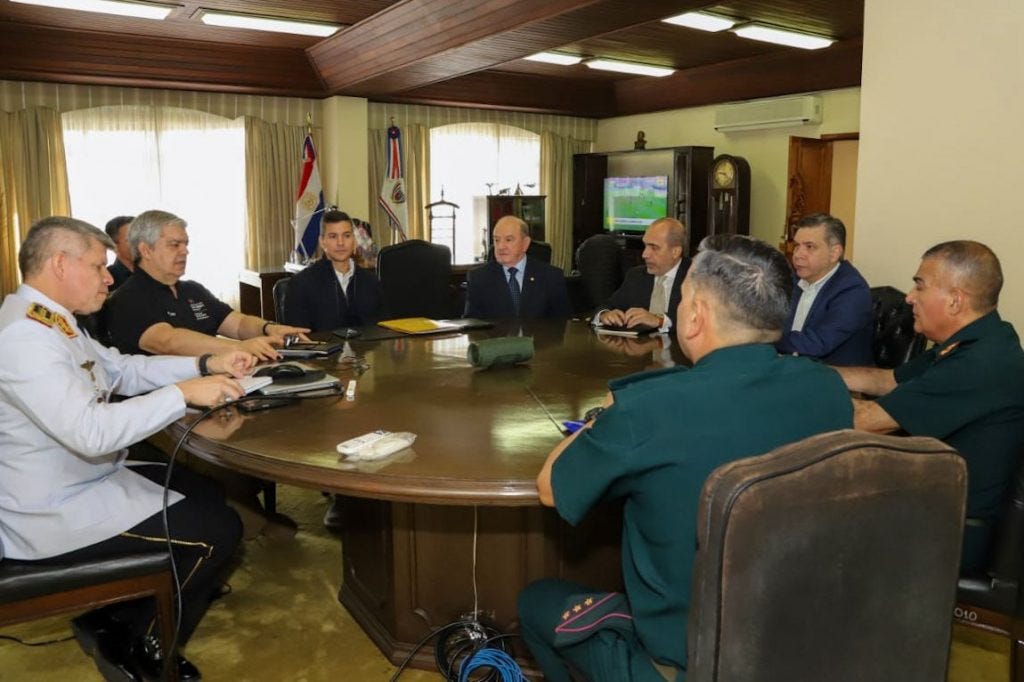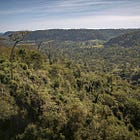Paraguay Declares War on “Narcoterrorists”
The Weekly Post | 03.11.25

TOP STORY
Paraguay designates Brazilian cartels as terrorist organisations
On Friday, Paraguay’s president Santiago Peña signed a decree designating Brazilian criminal groups Comando Vermelho (CV) and Primeiro Comando da Capital (PCC) as “international terrorist organisations.” The move formally activates Paraguay’s anti-terrorism law and allows for enhanced surveillance, asset freezes, and harsher penalties of up to 30 years in jail. It also signals an even greater role for the armed forces in law enforcement, particularly in areas near to Brazil.
The move follows a massive Oct 28 police raid in Rio de Janeiro that killed 132 people, the bloodiest in modern Brazilian history. Rio state governor Cláudio Castro described the operation in the favelas as a successful blow against Comando Vermelho “narcoterrorists.” Codena, Paraguay’s national defense council, subsequently met on October 30. It found that the two transnational drug gangs are “operationally present” in Paraguay and resolved to reinforce border security to guard against Brazilian criminals seeking refuge from the crackdown.
“For us, there can be no doubt,” said Peña in a statement. “These criminal groups are seeking to destabilise countries and we have to confront them.” He noted how his administration also slapped Lebanese militant organisation Hezbollah and Venezuela’s so-called “Cartel de los Soles” with the terrorist label earlier this year — but recognised Brazil is yet to take the same step with the PCC and CV. “We have a very respectful relationship with Brazil, even though our political positions are different.”
THE PARAGUAY POST ANALYSIS:
Born out of a deadly São Paulo prison riot in 1993, the PCC is the region’s most powerful criminal organisation, with roughly 40,000 footsoldiers and business interests across swathes of South America. In Paraguay, an estimated 500 PCC members concentrated in Amambay, Concepción and Alto Paraná are key players in shifting cocaine towards Brazil and Europe. The CV presence is smaller, focused on marijuana production in Canindeyú and Caaguazú as well as urban micro-trafficking.
Friday’s designation seems more of an opportunistic PR move than a decision that will dramatically change facts on the ground. Though linked to targeted assassinations and spectacular bank heists — including one last week in Canindeyú — neither group has carried out the kind of mass atrocities for political purposes in Paraguay which would fit the traditional definition of terrorism. As the Post reported earlier this year, Paraguay’s armed forces are already patrolling conflict areas and dismantling narco camps in cooperation with Brazilian authorities.
The move comes as Donald Trump seeks to topple the “narcoterrorist” regime of Nicolás Maduro in Venezuela. Peña’s “tough on crime” stance further aligns him with the White House, while subtly putting pressure on Brazilian president Lula, who has frequently clashed with Trump. The day before the designation, Paraguay’s top judges quietly shelved an investigation into legal officials allegedly in league with slain “narco-congressman” Lalo Gomes and — you guessed it — the PCC.
You’re reading The Weekly Post, a Monday briefing on all things Paraguay.
Also in this week’s issue:
China courts opposition lawmakers · Starlink in the Chaco & military bases · Shipping booms, but faces bottlenecks · Bullrunners on parade · In Other News
Want to read the rest? Get your free trial here:
POLITICS
Back from Beijing
A group of opposition lawmakers were expected to land in Asunción today after a controversial trip to the People’s Republic of China. The official visit — which included tours of the Communist Party Museum, the National People’s Congress, an Artificial Intelligence centre and telecoms giant Huawei, as well as meetings with senior Chinese officials — has stirred up the hornet’s nest in Paraguay, which recognises Taiwan rather than China.
Keep reading with a 7-day free trial
Subscribe to The Paraguay Post to keep reading this post and get 7 days of free access to the full post archives.



